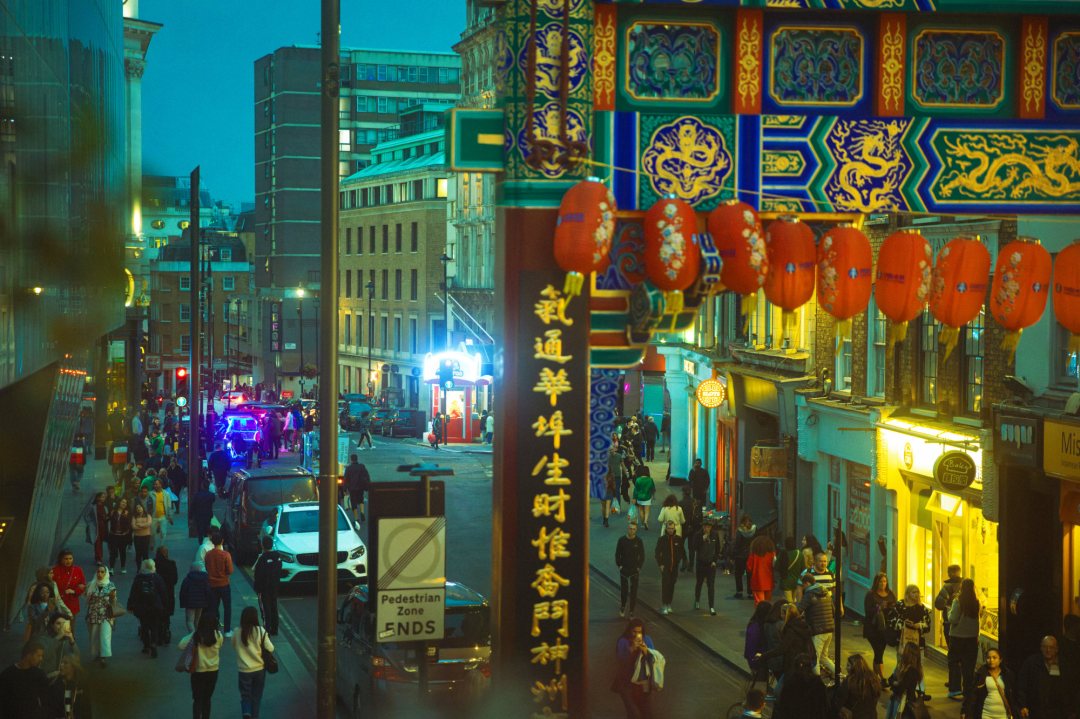The Chinese community in Britain has long been seen as peaceful and law-abiding. Yet beneath the surface, there is a darker, more complex reality which only comes to light when organised criminal activity is in the news.
One of the most harrowing reminders of this came in 2000, when 58 Chinese migrants suffocated inside a lorry while attempting to illegally enter the UK. That tragedy exposed not just the plight of vulnerable migrants, but also the reach of organised smuggling networks operating across Europe.
Today, there are fresh concerns. Over the past 20 months, Chinese gang members have been implicated in at least 14 ‘red paint attacks’ across London. Witnesses have reported hearing Mandarin spoken with northern Chinese accents at the scenes of these crimes. Similar incidents have also been reported in Manchester, Liverpool, Bradford, Reading, Huddersfield, and Clacton-on-Sea.
These attacks bear the unmistakable hallmarks of Chinese triad activity. Red paint attacks are a well-known intimidation tactic used across Hong Kong, Macau, Taiwan, southern Mainland China (notably Shenzhen and Guangzhou) and Southeast Asia (including Malaysia, Singapore, Vietnam and Thailand).
Triad gangs are historically rooted in Hong Kong. They were commonly accused of extorting money from local Chinese businesses by charging protection money, while acting as extra-legal protectors. Triad societies are not so different from other organised crime syndicates, such as Italian and Russian mafias, or the Japanese Yakuza. They can, however, be different from one another in terms of their hierarchical structure and unique culture and rituals.
In regions where triads are active, red paint is splashed on properties to pressure debtors into repayment or to issue territorial warnings to rival gangs. The act is designed to shame, intimidate, and demonstrate the gang’s reach without initially resorting to direct violence.
In Hong Kong, such attacks are a disturbingly common tool employed by debt collectors – often with links to triads – on behalf of finance companies or loan sharks. When initial threats fail, the intimidation escalates: collectors may harass family members, visit workplaces, or in severe cases, physically assault debtors.
Britain is no stranger to Chinese organised crime. Four major Hong Kong triad societies – the ‘14K’, ‘Wo Shing Wo’, ‘Wo On Lok’ (also known as ‘Shui Fong’), and ‘Sun Yee On’ – established footholds in the UK decades ago. London’s Chinatown was initially controlled by ‘Wo Shing Wo’ until the early 1990s, when ‘14K’ took over, later expanding into cities like Cardiff, Nottingham, Glasgow, Bristol, Liverpool, Plymouth and Birmingham. In areas where triads operate, businesses are able to function as normal as long as they are submissive to the gangs, which may often involve payments as ‘protection fees’.
While early British members were often senior triad figures from Hong Kong, local recruitment is now common. Since the late 1990s, migration from Mainland China – particularly Fujian province – has further changed the composition of these gangs. Mainland Chinese gangs such as ‘Fuk Ching’ (or ‘Fuqing’) and ‘Changle’ have risen to prominence alongside their Hong Kong counterparts.
Today, Chinese organised crime in Britain is broadly split into two spheres: locally based gangs (such as traditional triads and Mainland Chinese groups) and transnational crime groups (smuggling, human trafficking and money laundering syndicates).
Historically, both local and transnational triad organisations have maintained a relatively low profile compared to Russian or Italian mafias. Their focus was primarily on distributing counterfeit goods, operating illegal gambling dens, managing prostitution networks, and smuggling cigarettes. However, recent years have seen triads switch towards more sophisticated criminal activities, including drug trafficking, underground banking, and large-scale money laundering operations.
The recent spate of red paint attacks suggests there is the potential for more visible and violent criminality. If the pattern follows typical triad escalation tactics, red paint is just the first warning that triads are becoming more active.
With the Chinese population in Britain growing – through both legitimate migration and, regrettably, through trafficking – this country is becoming an increasingly fertile ground for triads. Cities with large Chinese communities such as London, Manchester, and Birmingham are particularly vulnerable.
The British authorities cannot afford to overlook these warning signs. Preventative action is far more effective, and less costly, than reacting to violence after it erupts.
Tackling the threat requires a multi-pronged strategy. First, our police must improve their intelligence sharing with other Asian countries, particularly Hong Kong, Mainland China, Taiwan and Southeast Asia, where these criminal organisations are deeply understood.
Second, engagement with British Chinese communities is e. Community trust is essential if want people to report intimidation, threats and other suspicious activities. Finally, tracking and analysing ‘red paint’ incidents systematically could act as an early-warning system for escalating organised crime.
As history shows, organised crime thrives when the early warnings are ignored. Britain should not make that mistake again when it comes to triads operating in this country.








Comments